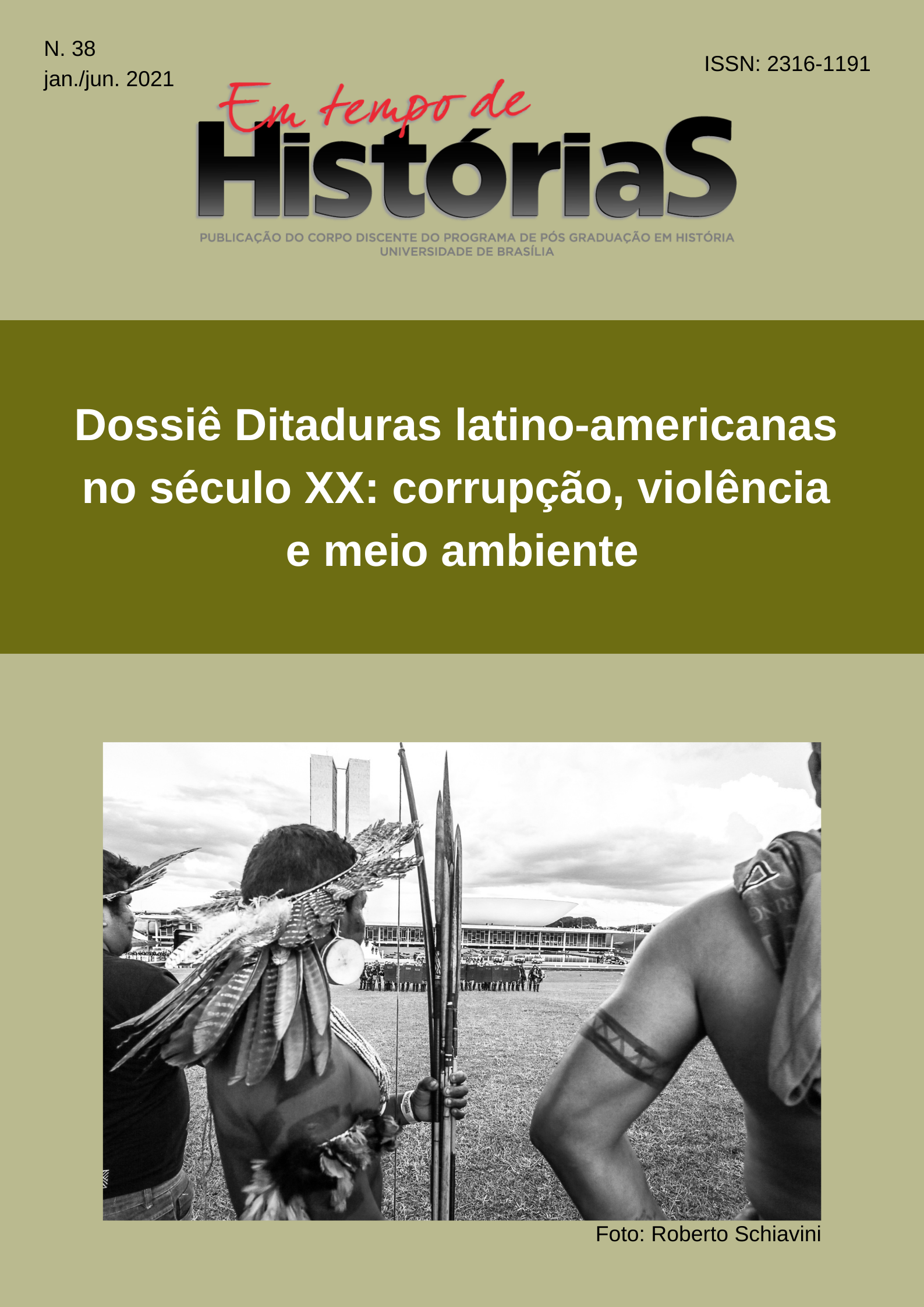O desenvolvimentismo de Furtado e o liberalismo de Campos?
DOI:
https://doi.org/10.26512/emtempos.v1i38.35352Palavras-chave:
Celso Furtado. Roberto Campos. Rede Intelectual.Resumo
Este artigo tem como objetivo discutir através das obras autobiográficas de Celso Furtado e Roberto Campos as possíveis conexões de redes intelectuais estabelecidas entre os dois economistas a partir do ano de 1953. Para tal objetivo utilizaremos como referencial teórico as contribuições de Eduardo Devés-Valdés e outros autores complementares para visualizarmos as possibilidades teóricas e metodológicas que permitem a abordagem da História Intelectual. O interesse em abordar os dois economistas citados refere-se ao papel de protagonismo que ambos tiveram no pensamento econômico brasileiro do século XX, principalmente ao elaborarem influentes teorias econômicas, participarem de parcerias, comissões mistas e governos, principalmente atuando como planejadores. A hipótese central do artigo é que foi estabelecida uma conexão de rede intelectual entre Furtado e Campos na época da formação da Comissão Mista CEPAL-BNDE. Para trabalhar esta hipótese iremos explorar dentro das obras autobiográficas as aproximações e distanciamentos entre os dois economistas.
Downloads
Referências
BIELSCHOWSKY, Ricardo. Pensamento Econômico Brasileiro: O Ciclo Ideológico do Desenvolvimento. 2ªed. Rio de Janeiro: Contraponto, 1995.
CAMPOS, Roberto. A lanterna na popa. Rio de Janeiro: Topbooks, 1994.
COSTA, Adriane Vidal. Uma proposta teórico-metodológica para o estudo de redes intelectuais latino-americanas formadas nos exílios nas décadas de 1960 e 1970. In: Nas tramas da cidade letrada. Belo Horizonte: Fino Traço, 2018.
DEVÉS-VALDÉS, Eduardo. O Pensamento Latino-Americano no Século XX: tomo II ”“ Da CEPAL ao Neoliberalismo (1950-1990). Trad. Gilmar Antonio Bedin e Joice Graciele Nielsson. Ijuí: Editora Unijuí, 2014.
DEVÉS-VALDÉS, Eduardo. Redes Intelectuales en América Latina: Hacia la constitución de una comunidad intelectual. Santiago de Chile: Segunda Época, 2007.
DOSSE, François. La Marcha de las Ideas: Historia de los intelectuales, Historia Intelectual. Valência: Universitat de Valência, 2007.
ENNE, Ana Lúcia. O Conceito de Rede e as Sociedades Contemporâneas: Comunicação e Informação. V7, n°2. Pág 264-273.- jul. /dez.2004.
FURTADO, Celso. A Fantasia Desfeita. In: Obra Autobiográfica. São Paulo: Companhia das Letras, 1997.
LAHIRE, Bernard. Campo. In: CATANI, Afrânio Mendes [et al.] Vocabulário Bourdieu. Belo Horizonte: Autêntica Editora, 2017.
MALTA, Maria Mello (et. Al.). Ecos do Desenvolvimento: Uma História do Pensamento Econômico Brasileiro. Rio de Janeiro: Ipea: Centro Internacional Celso Furtado de Políticas para o Desenvolvimento. 2011.
SIRINELLI, Jean-François. Os Intelectuais. In: RÉMOND, Renné.(Org.). Por uma História Política. Trad. Dora Rocha. 2ªEd. Rio de Janeiro: FGV Editora, 2003.
SILVA, Helenice Rodrigues. Fragmentos da História Intelectual: Entre Questionamentos e Perspectivas. Campinas: Papirus Editora, 2002.
Downloads
Publicado
Como Citar
Edição
Seção
Licença
Copyright (c) 2021 Em Tempo de Histórias

Este trabalho está licenciado sob uma licença Creative Commons Attribution-NonCommercial 4.0 International License.
Autores que publicam nesta revista concordam com os seguintes termos:
- Autores mantém os direitos autorais e concedem à revista o direito de primeira publicação, sendo o trabalho simultaneamente licenciado sob a Creative Commons Attribution License , licença que permite que outros remixem, adaptem e criem a partir do seu trabalho para fins não comerciais, e embora os novos trabalhos tenham de lhe atribuir o devido crédito e não possam ser usados para fins comerciais, os usuários não têm de licenciar esses trabalhos derivados sob os mesmos termos.
- Autores têm autorização para assumir contratos adicionais separadamente, para distribuição não-exclusiva da versão do trabalho publicada nesta revista (ex.: publicar em repositório institucional ou como capítulo de livro), com reconhecimento de autoria e publicação inicial nesta revista.
- Autores têm permissão e são estimulados a publicar e distribuir seu trabalho online (ex.: em repositórios institucionais ou na sua página pessoal) a qualquer ponto antes ou durante o processo editorial, já que isso pode gerar alterações produtivas, bem como aumentar o impacto e a citação do trabalho publicado (Veja O Efeito do Acesso Livre).













